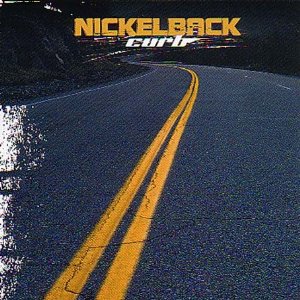A REVIEW OF "CURB" NICKELBACK'S 1996 INDEPENDENT DEBUT ALBUM
/Curb by Nickelback
Curb is an example of an album which is almost impossible to listen to impartially. In this case, hindsight will never pass the vision test. Nickelback is so big—and so detested—that most serious music listeners will be disgusted before they even listen to the band's 1996 Canadian debut. It's like looking at a deer which has just been run over by a truck. There may be a sign of life, but you know there's nothing that can be done to save it. It's technically alive, but we might as well say it's dead, just so the kid next to us doesn't get his hopes up. So it is with Curb, which was unfortunately written and recorded by a band named Nickelback.
On this album, the then unknown Canadian rock band Nickelback, sounds like a group that might cause an A&R agent to jot down the following notes:
- This band sounds tight and Chad Kroeger is a good frontman, with maybe just a bit too much of a forced, gravelly timbre in the voice. I think that's something that can be fixed with some coaching though. It also might indicate a need for a much better producer.
- As for their songs, some are okay. Radio friendly, for sure, but still just okay. No number one hits, although "Pusher" has some strong potential. It has a good hook on both melody and lyrics in the chorus as indicated by the line "ask much anymore." Sort of sounds like Stone Temple Pilots meets Alice in Chains. Verses of song need some help—not horrible, but a little trite. Perhaps they need a cowriter.
- A few songs really suck: "Curb," "Where?," "Sea Groove," "Just Four"
- "Fly" channels a small Kurt Cobain/Nirvana similarity
- Lyrics range from okay to incredibly difficult to decipher. With music this forceful, however, it's essentially meaningless.
The reason I did this hypothetical scenario was to force myself to be intellectually honest and recognize that Nickelback shows promise on Curb. I recognize that my notes are sort of cheap, because we all know how well the band capitalized in the end. Some of Curb is really awful, so awful that you have to admit that they sound really good today by comparison. Honestly, it's night and day. The one good cut is "Pusher," a song I actually repeated a few times. It had to be their single.
Here's the thing. This is the worst thing Nickelback ever did. There's just no way this album can win. Nickelback fans will dislike it because the quality isn't anything close to that of their popular music, a lot of people will hate it simply because it is Nickelback and the rest will hate it because their intuition tells them: this music really sucks.
But keep in mind, a lot of bands really suck when they start out. Some get better over time, while others wind up as "medium main sequence suck stars" for the remainder of their careers. In other words, early Nickelback is still better than 90% of bands you'll ever catch at a local bar.
Curb by Nickelback



